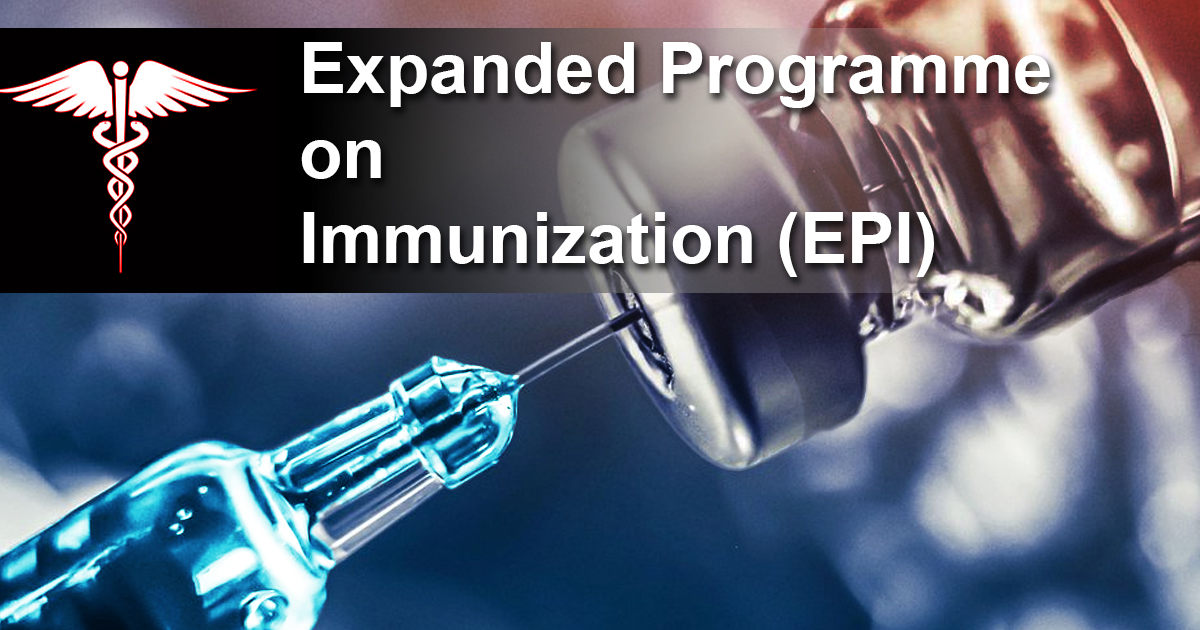Introduction:
The Expanded Programme on Immunization (EPI) launched by the World Health Organization (WHO) in 1974 marks a significant milestone in global public health. It aimed to ensure universal access to life-saving vaccines for children, initially focusing on six childhood diseases: diphtheria, pertussis, tetanus, polio, measles, and tuberculosis.
EPI: A Success Story
EPI has demonstrably reduced the global burden of vaccine-preventable diseases (VPDs), leading to:
- Reduced Mortality: Childhood mortality rates have significantly declined due to widespread immunization programs.
- Disease Eradication: Smallpox was successfully eradicated in 1980, demonstrating the potential for complete elimination of VPDs.
- Improved Health Outcomes: Immunization protects individuals and communities from debilitating diseases, contributing to better overall health and well-being.
Decline Trend and Disparities in Immunization:
Despite its achievements, EPI faces challenges:
- Declining Coverage: While significant progress has been made, full immunization coverage has plateaued or even declined in some regions due to various factors like:
- Vaccine hesitancy and misinformation.
- Weak health systems and infrastructure.
- Socioeconomic disparities and inequitable access to healthcare.
- Geographical Disparities: Immunization coverage often varies significantly within countries, with marginalized communities and remote areas often lagging behind.
Vaccination Coverage among Adults:
While EPI primarily focuses on childhood immunization, adult vaccination is crucial for maintaining population immunity and preventing outbreaks. However, adult vaccine coverage remains relatively low compared to children:
- Limited Awareness: Many adults are unaware of the recommended vaccines and their benefits.
- Lack of Routine Vaccination Programs: Adult immunization programs are often less established compared to childhood immunization.
- Specific Needs: Certain vaccines are particularly important for adults, such as those targeting influenza, tetanus, and hepatitis B.
Suggestions to Improve Adult Vaccine Coverage:
- Public Awareness Campaigns: Extensive campaigns are needed to educate adults about the importance of vaccination and address vaccine hesitancy.
- Strengthening Healthcare Systems: Robust infrastructure, trained healthcare personnel, and accessible vaccination services are crucial for reaching all adults.
- Targeted Programs: Specific programs tailored to different adult populations (e.g., pregnant women, elderly, healthcare workers) can improve coverage.
- Integration with Existing Programs: Integrating adult vaccination with existing healthcare services like chronic disease management programs can increase accessibility.
- Policy and Advocacy: Government policies promoting adult vaccination, including workplace vaccination programs, can further incentivize participation.
EPI has revolutionized public health by significantly reducing the burden of VPDs. However, addressing declining coverage trends, geographical disparities, and limited adult vaccination remains crucial. By implementing targeted interventions, strengthening healthcare systems, and promoting public awareness, we can further improve immunization coverage and achieve the goal of universal protection against vaccine-preventable diseases.
 Chinmaya IAS Academy – Current Affairs Chinmaya IAS Academy – Current Affairs
Chinmaya IAS Academy – Current Affairs Chinmaya IAS Academy – Current Affairs

